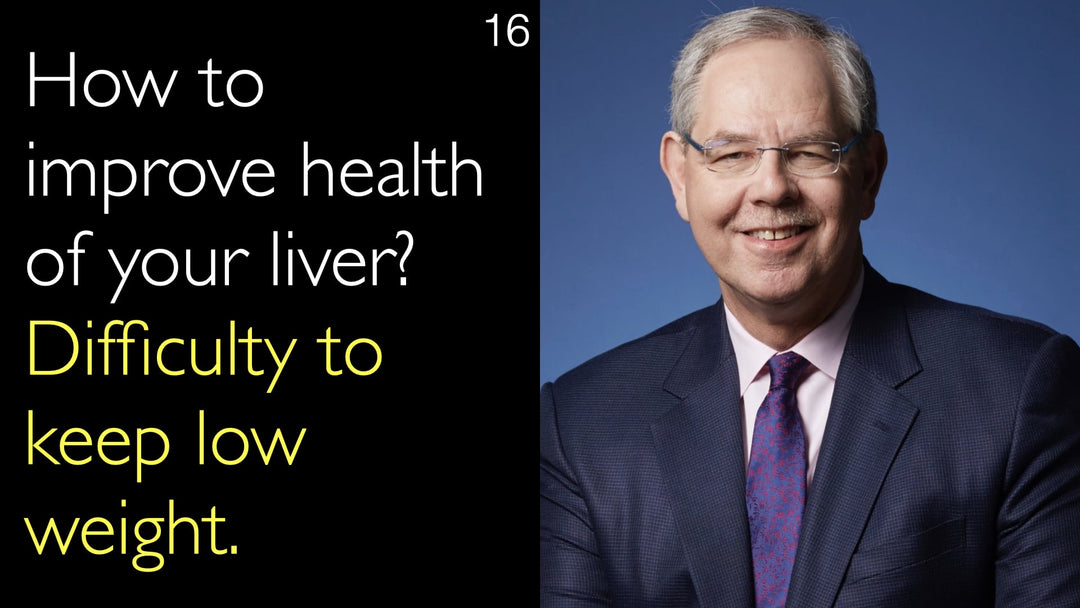Leading expert in mesothelioma treatment, Dr. Dean Fennell, MD, explains the innovative Mesothelioma Stratified Therapy (MiST) clinical trial program. This master protocol tests multiple targeted treatments simultaneously in biomarker-selected patient groups. Dr. Fennell details how this approach accelerates drug development for this rare cancer. The strategy enriches trials with patients most likely to benefit from specific therapies. MiST trials set a rational bar for meaningful drug activity based on disease control at 12 weeks. This framework allows rapid validation of new mesothelioma treatments and biomarkers.
Innovative Stratified Therapy for Mesothelioma: The MiST Clinical Trial Program
Jump To Section
- MiST Clinical Trial Strategy
- Biomarker Enrichment Approach
- Rapid Patient Recruitment
- Measuring Treatment Efficacy
- Advanced Cancer Biology Analysis
- Future Mesothelioma Research
- Full Transcript
MiST Clinical Trial Strategy
Dr. Dean Fennell, MD, describes the Mesothelioma Stratified Therapy (MiST) program as a master clinical trial protocol for testing multiple treatment hypotheses simultaneously. This innovative approach was developed specifically for mesothelioma, a relatively rare cancer that benefits from accelerated research methods. The strategy draws inspiration from historical breakthroughs in lung cancer treatment, where targeted therapies like Gefitinib demonstrated exceptional efficacy in biomarker-selected patients.
The MiST framework allows researchers to explore multiple drug sensitivity hypotheses within a single coordinated clinical trial structure. Dr. Dean Fennell, MD, emphasizes that this model represents a significant advancement over traditional single-drug trials, particularly for rare cancers where patient recruitment can be challenging.
Biomarker Enrichment Approach
The core principle of the MiST program involves enriching clinical trials with patients who have specific biological features that predict treatment response. Dr. Dean Fennell, MD, explains that this biomarker-driven approach increases the likelihood of therapeutic success by matching the right patients with the right treatments. The strategy leverages growing knowledge about mesothelioma's genetic features and vulnerabilities.
This precision medicine approach represents a paradigm shift in mesothelioma treatment development. Instead of testing therapies in unselected patient populations, the MiST program identifies subgroups most likely to benefit based on their tumor biology. This method maximizes both patient benefit and research efficiency.
Rapid Patient Recruitment
Dr. Dean Fennell, MD, highlights the remarkable efficiency of the MiST clinical trial model for patient recruitment. The first master clinical trial recruited patients from start to finish within just 15 weeks, demonstrating the feasibility of this approach even for rare cancers. This accelerated timeline is particularly valuable for aggressive diseases like mesothelioma where treatment options are limited.
The rapid recruitment capability addresses a critical challenge in rare cancer research. Traditional clinical trials often struggle to enroll sufficient participants, leading to prolonged study timelines and delayed treatment advances. The MiST framework overcomes this barrier through its coordinated, multi-arm design.
Measuring Treatment Efficacy
The MiST program establishes rational benchmarks for evaluating treatment effectiveness in mesothelioma. Dr. Dean Fennell, MD, explains that researchers set a specific bar for meaningful drug activity based on disease control at 12 weeks. This outcome measure provides a clinically relevant assessment of whether a particular treatment shows promise against mesothelioma.
This standardized evaluation framework allows for consistent assessment across multiple treatment arms within the master protocol. The 12-week disease control landmark offers a practical intermediate endpoint that can guide decisions about which therapies warrant further investigation in larger randomized trials.
Advanced Cancer Biology Analysis
Dr. Dean Fennell, MD, emphasizes how modern technology enables deep investigation of mesothelioma biology within the MiST program. Researchers can examine the entire mutational spectrum and genomic landscape of tumors, including features relevant to immunotherapy response. The program also explores novel predictive factors such as the gut microbiome's potential influence on treatment sensitivity.
Advanced computational approaches, including machine learning, help researchers analyze large datasets to identify patterns predicting drug sensitivity. These sophisticated analytical methods allow the MiST program to move beyond simple biomarker testing toward comprehensive biological understanding of treatment responses.
Future Mesothelioma Research
The MiST program creates a pipeline for validating mesothelioma biomarkers and developing subsequent clinical trials. Dr. Fennell describes how insights from initial MiST trials inform the design of randomized studies to confirm early findings. This iterative process accelerates treatment development while maintaining scientific rigor.
Dr. Dean Fennell, MD, provides a specific example with the MiST1 clinical trial investigating PARP inhibition. The program's structure allows researchers to thoroughly investigate the mechanisms driving treatment sensitivity in responders. These insights then fuel the development of validation trials that can potentially establish new standard treatments for biomarker-selected mesothelioma patients.
Full Transcript
Dr. Anton Titov, MD: In your New England Journal of Medicine review of mesothelioma treatment, you mentioned the particular master clinical trial set up to check different hypotheses for mesothelioma treatment at the same time. This is called Mesothelioma Stratified Therapy (MiST) clinical trials. Could you please explain what is the strategy in such clinical trials? How can Stratified Therapy be helpful for patients with mesothelioma?
Dr. Dean Fennell, MD: Yes. I will take a completely different example in terms of cancer that many will be aware of. Back in 2004 or so, Gefitinib was a drug which really had minimal activity in lung cancer. Gefitinib was found by a number of very observant investigators to have exceptional response activity in some patients.
This was deciphered as being due to the EGFR mutations. We now know EGFR mutations and we test for them routinely. Of course, this was sort of an empirical finding because it came from the bedside. First, this observation, extreme sensitivity to Gefitinib, was then investigated.
But there is increasing knowledge that we had over the last number of years. We have models and platforms for trying to explore drug sensitivity or vulnerabilities within cancer to drugs. The number of hypotheses that we can apply now in the clinic is increasing.
So the idea is this. Can we take a good idea? The idea is based perhaps on preclinical data, one that's based on the known genetic features of mesothelioma. Can we try to enrich patients with a particular cancer feature, in order to give them the best chance of benefiting from a drug?
So the master protocol idea is one that we have developed. We have pioneered this in some ways with the MiST clinical study. And we published the second arm of the study only this weekend in Lancet Oncology.
Dr. Dean Fennell, MD: But what we found is that it is possible to select patients with particular biological features of mesothelioma and give them a particular treatment. That was the first and most important thing for a relatively rare disease. We're able to do that pretty quickly.
We had our first master clinical trial. We certainly recruited patients from start to finish within 15 weeks. The second point is that, given the relatively small nature of these clinical trials, we are looking to try and understand whether or not drugs have meaningful activity against mesothelioma.
So we set a bar that is rational in order to be able to say this: well, this particular treatment is effective or not effective. And we're basing that on a particular landmark, which is how many of the mesothelioma patients have responded or had the disease control at 12 weeks.
And the last thing that's really important about master clinical trial protocol is this. It is aside from being able to broaden the opportunity for patients with mesothelioma. We test a group of patients. If they have a particular tumor marker, they get their particular treatment.
And that means that we can perhaps broaden the number of patients who can benefit from mesothelioma therapy. We have the opportunity with modern technology now to really look very deeply at the biology of cancer. We can do it in ways that I wouldn't have thought imaginable actually a number of years ago.
We can examine the entire mutational spectrum of cancer, genomic landscape even for immunotherapies. We can look at the microbiome in the gut to see whether this has any sort of feature that might predict sensitivity.
Using quite recently developed approaches in machine learning, we can begin to dig into these very large data sets and make inferences about the features of cancer the data seemed to predict.
So MiST is the master clinical trial protocol. It provides us with that first opportunity to examine the drug sensitivity associated with a new drug for mesothelioma. It's a new idea, but we go further and try to explain the basis for exceptional response.
We do it in a way that we might then be able to develop a new secondary clinical trial with that knowledge. Then we can perhaps validate mesothelioma biomarkers and have the best likelihood of therapeutic success.
This is something that we have done. We've taken MiST1 clinical trial, which was looking at PARP inhibition. We have tried to understand as much as we can what's driving sensitivity to mesothelioma therapy in responders.
Then we now have a randomized clinical trial, which we will want to validate our early findings in.







